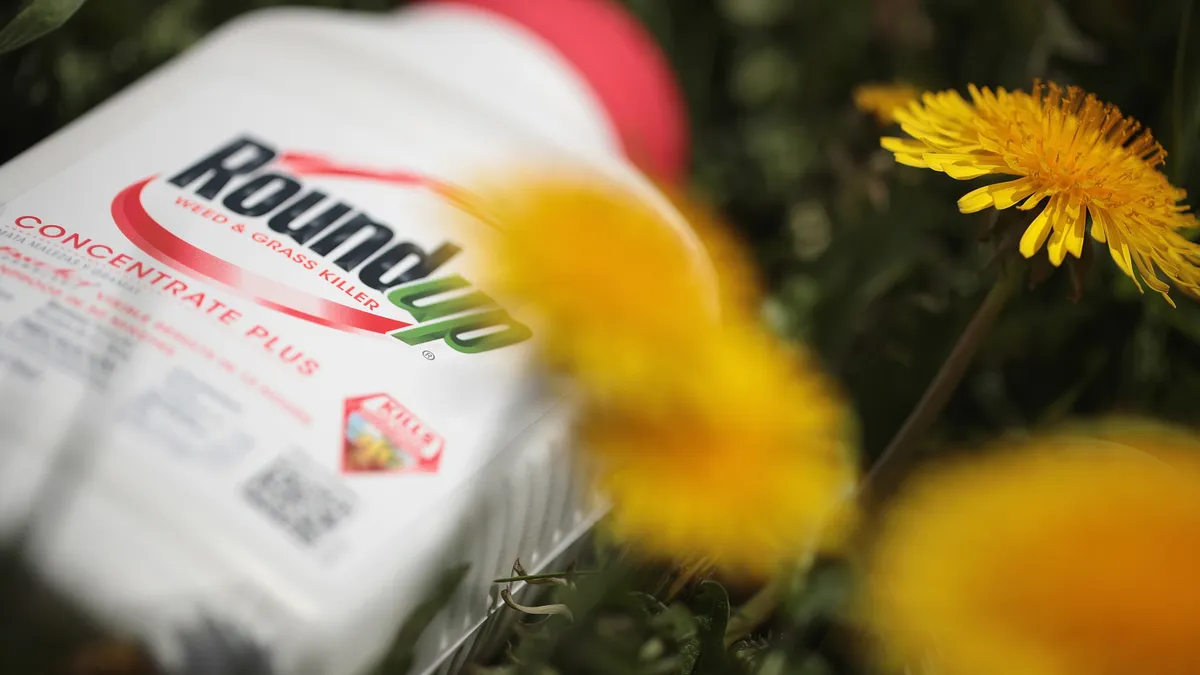Dive Brief:
- Europe's food safety regulator said Thursday that the controversial herbicide glyphosate — the main active ingredient in Bayer's Roundup weed killer — is safe to use in agriculture.
- A review by the European Food Safety Authority "did not identify any critical areas of concern" in terms of glyphosate's effect on human and animal health.
- The decision will help the European Commission decide whether to propose to keep the herbicide on the market. Approval for glyphosate is set to expire Dec. 15.
Dive Insight:
The World Health Organization found glyphosate was "probably carcinogenic to humans" in 2015, setting off a firestorm of legal challenges and political debate around the world.
Europe in 2017 narrowly approved to keep glyphosate on the market for five years, and countries including France and Germany unveiled their own bans on the herbicide. Activists had hoped the five-year approval — less than the standard 10 or 15 years for most chemicals — would open the door for further regulation down the line.
"This EFSA advice is beyond any logic," Angeliki Lysimachou, researcher at Pesticide Action Network Europe, said in a statement. "From cancer, neurotoxicity, impact on the microbiome, soil health, bees and ecosystems, our regulators turn their back on all the potential harms reported following glyphosate exposure.”
The decision is a win for Bayer, who acquired glyphosate creator Monsanto in 2018 and paid over $10 million to settle tens of thousands of claims in the U.S. that the herbicide caused cancer.
The Glyphosate Renewal Group, which counts Bayer as a member, welcomed the EFSA decision, saying it lays "the foundation for a successful re-approval of glyphosate in the EU."
"These final scientific conclusions are consistent with assessments of leading health regulators around the world, as well as the overwhelming evidence from nearly 50 years of science," the group said in a statement.
In its decision, the EFSA still noted a high long-term risk to mammals in 12 out of 23 proposed uses of glyphosate. It also said it couldn't determine the herbicide's effect on biodiversity in part because of a lack of agreed-upon protection goals











